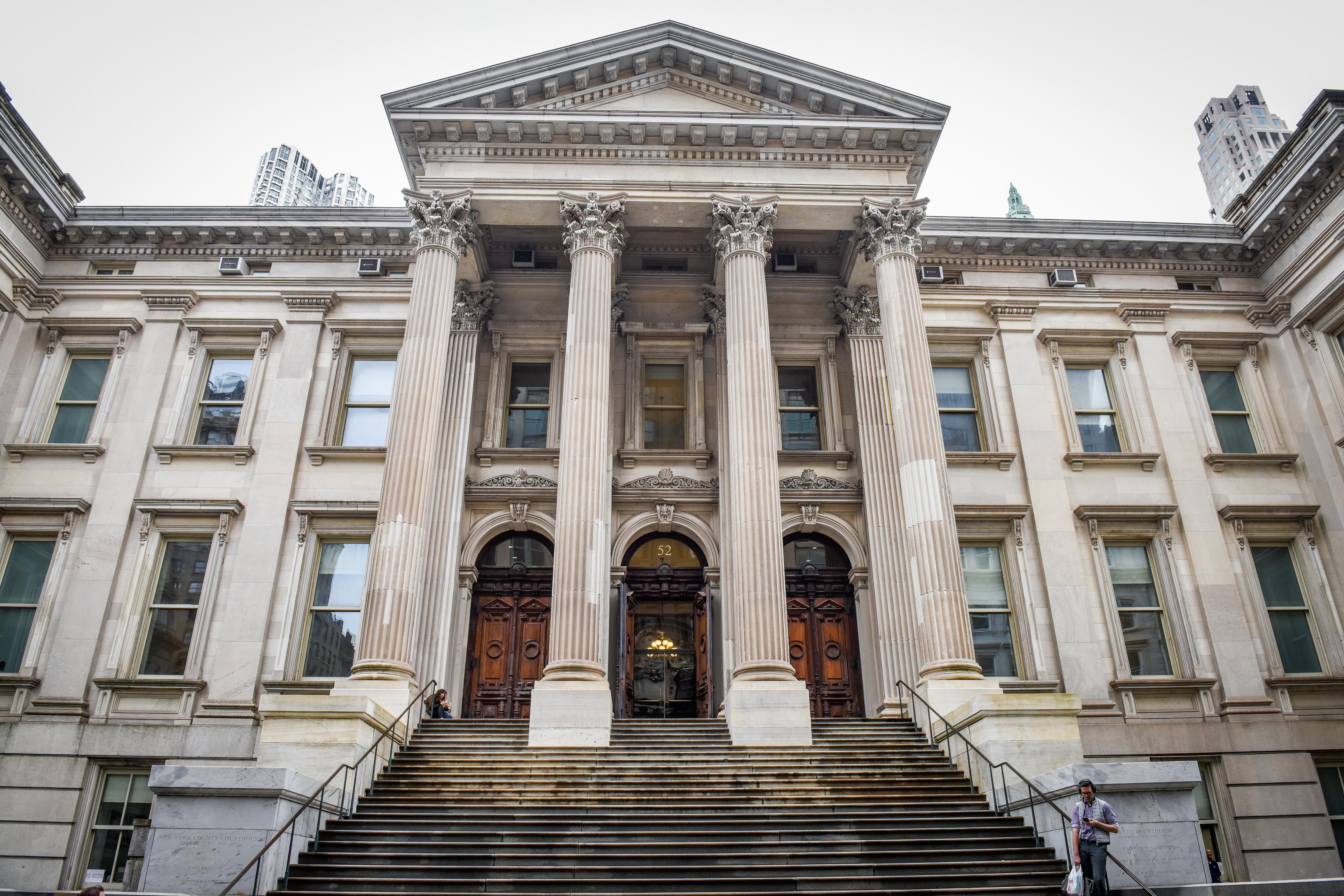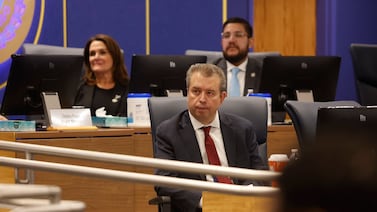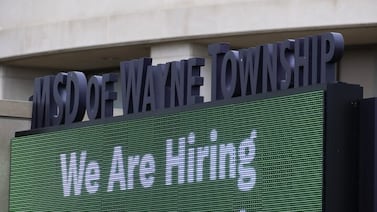Sign up for Chalkbeat New York’s free daily newsletter to get essential news about NYC’s public schools delivered to your inbox.
New York City’s school board is set to vote later this month on a resolution reaffirming the school system’s support for undocumented students as President-elect Donald Trump prepares what he says will be a “mass deportation.”
The Panel for Educational Policy’s resolution is advisory and wouldn’t change the Education Department’s policy. But it enumerates many of the existing rights and protections for undocumented students in city schools. Those include guidelines preventing school staff and NYPD safety agents from cooperating with federal immigration authorities in most cases, and rules barring discrimination against students based on their immigration status.
The resolution also urges the city Education Department to advocate for the preservation of federal programs like Deferred Action for Childhood Arrivals — commonly known as DACA — that provide legal protections for some immigrants. It also opposes the creation of a “Muslim registry system,” a proposal from Trump’s first term to create a database of people from some Muslim-majority countries.
“All of the major school systems across the country…have been making statements on this,” said Naveed Hasan, a Manhattan parent and Panel for Educational Policy member who authored the resolution. “It’s very important for New York City, being the biggest system and probably [having] the most immigrants proportionally, to have a public statement.”
The panel resolution on immigrant students is slated for a vote on Jan. 22 and is expected to pass, Hasan said. It is part of a larger set of efforts in city schools to prepare for stepped up immigration enforcement in Trump’s second term. City officials don’t ask about or keep track of students’ immigration status. But roughly 48,000 new arrivals living in homeless shelters have enrolled in city schools since the summer of 2022, as part of a massive influx of migrants from Latin America, West Africa, and other regions. Shortly after Trump’s election, Chicago Public Schools passed a similar resolution.
The city Education Department is controlled by Mayor Eric Adams, who has signalled his willingness to cooperate with the Trump administration to prioritize the removal of undocumented immigrants who committed violent crimes. But he has urged new arrivals to continue using city services like schools.
The Panel for Educational Policy is made up mostly of mayoral appointees and has the power to approve items like contracts and school closure proposals.
The panel rarely passes resolutions, and they are largely symbolic. Most recently, the panel adopted two resolutions related to transgender students.
Last month, the city Education Department officials reiterated to all principals that they should not let agents from federal Immigration and Customs Enforcement (ICE) enter school buildings without a judicial warrant, and should contact city lawyers for support if agents show up.
Chancellor Melissa Aviles-Ramos said at a recent panel meeting that “Our schools are safe harbors for our children and they will remain so.”
Several local Community Education Councils have also passed their own versions of resolutions affirming their support for undocumented students and families.
And some schools are working with lawyers and advocacy groups to offer “know your rights” workshops to families or help develop “accompaniment plans” in case a family member gets deported.
In addition to laying out existing city policy for undocumented students, the resolution outlines the legal basis for that policy, including the landmark 1982 Supreme Court decision Plyler v. Doe that guarantees undocumented students the right to a public education. Hasan hopes the document will offer some reassurance to families fearful of the Trump administration.
He’s planning to get it translated in multiple languages “so that families and students who are impacted … can understand and read that we’re looking out for them and have their best interests in mind.”
The resolution also urges school staffers not to “inquire about or record a student’s or a family member’s immigration status,” which Hasan said reflects the Education Department’s privacy policies and helps ensure the information can’t be used for enforcement purposes.
But he acknowledged there are cases when it would be helpful for school staff to know students’ immigration situations in order to help connect them with resources or guide them through processes like applying to college, where immigration status can impact students’ eligibility for financial aid and scholarships.
“This is an unfortunate dance,” he said, “where we can’t have anyone in the system acknowledging any knowledge of students’ immigration status, but people want to help.”
Michael Elsen-Rooney is a reporter for Chalkbeat New York, covering NYC public schools. Contact Michael at melsen-rooney@chalkbeat.org







